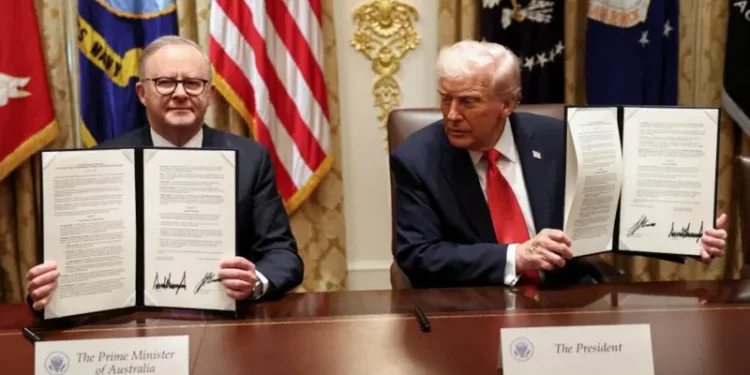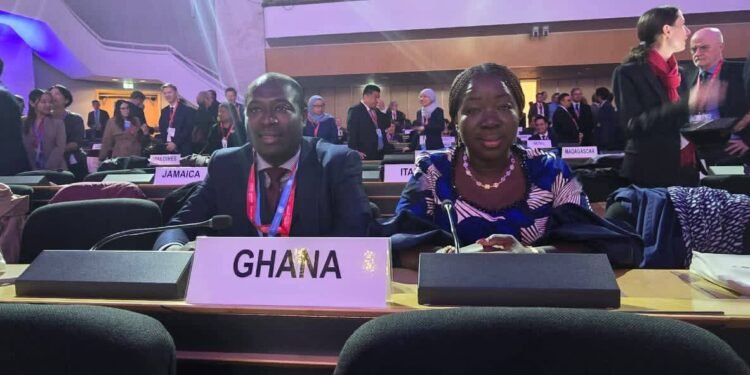Education is a crucial element of development and a necessary ingredient in developing a nation.
It is widely acknowledged as an essential vehicle for human development in all spheres of life and its significance cannot be overstated. Universally, education is acknowledged as a fundamental human right.
Although the right to education is universally recognized as a fundamental human right and is further backed by international and national laws and commitments, education in Ghana like several developing countries faces serious challenges, particularly financing.
It was against this backdrop that the Ghana Education Trust Fund was created by an Act of Parliament in 2000 (Act 581) to address the problems with Ghana’s educational financing. The Fund’s primary goal is to provide funding to support the government’s vision for education at all levels.
The Ghana Education Trust Fund Act, 581 outlines specific areas where the Fund should be used to further its primary goal which include supporting the development and upkeep of critical academic facilities and infrastructure in public educational institutions, particularly in tertiary institutions and allocations of monies from the Fund towards the operation of student loans schemes for students in accredited tertiary institutions.
Again, the Fund provides supplemental funding to the Scholarship Secretariat for the award of scholarships to brilliant but needy students and grants to tertiary institutions through the National Council of Tertiary Education, among other things.
However, despite the GETFund’s crucial role in Ghana’s financing of education, the government of Ghana passed the Earmarked Funds Capping and Realignment Act, 2017 (Act 947), in April 2017 to direct part of GETFund revenue to other government businesses.
In short, the passage and execution of Act 947 imply a reduction in revenue allotments to statutory funds designated for certain purposes, including the GETFund to fund education.
The capping of the Ghana Education Trust Fund has resulted in myriad of funding challenges to all educational institutions in the country.
This include the underfunding of the Student Loan Trust Fund and its attendant non-payment of beneficiaries, the stalling and abandonments of major GETFund financed projects across all educational institutions in the country and the inadequate educational infrastructure leading to over 5,000 schools under trees and dilapidated structures in the country.

For instance, despite Ghana’s ratification of international agreements such as the Education 2030 Incheon Declaration, which require the country to spend at least 4-6% of the country’s Gross Domestic Product (GDP) or spend at least 15% to 20% of all public spending towards education, the budget for education in 2023 is 3.09 per cent of GDP which represents only 12.97 per cent of government spending for the year 2023.
According to Africa Education Watch, the allocation to the education sector in the 2023 Budget Statement and Economic Policy is the smallest amount of the government budget devoted to education in over a decade.
The continuous capping of the Ghana Education Trust Fund is what has resulted in the underfunding of education in the country.
Calls For Uncapping GETFund Intensifies
The National Union of Ghanaian Students (NUG) has called on the government to uncap the Ghana Education Trust Fund Act (GETFund Act 581, 2000) which was established by the government for the funding of education in the country.
According to the General Secretary of the National Union Ghanaian Students, Mr Ismail Tuohesung Issahaque the capping of the Fund undermines the effective financing of education in the country, particularly basic education, the school feeding programme and infrastructure development across all the educational institutions in the country.
“Today, the GETFund is capped and the majority of the fund resources are going to other things not related to education. It is the reason why we are experiencing the huge traffic in our secondary schools. If the schools are there and we have enough classrooms and hostel for them, the teaching personnel are enough for them, then we won’t have problems”
Ismail Tuohesung Issahaque , NUGS General Secretary
He noted that if the government uncapped the Ghana Education Trust Fund Act, more revenue would be available to the government to provide funding to all public educational institutions in the country to ease the severe financial burden on them.

In conclusion, data from the Government of Ghana Budget from 2019 to 2023 revealed that almost 40 per cent of GETFund accrual is diverted by the Finance Minister to fund other government businesses.
Given the critical role, GETFund continues to play in education financing and to ensure reliable and sustainable financing of the education sector, It is therefore untenable that the Fund remains capped.
The government must therefore initiate steps to amend Act 947 to expunge GETFund as one of the earmarked funds capped to allow the Fund to provide its mandate.
READ ALSO: CDD-Ghana And CODEO Forms Media Forum Ahead Of Election 2024























